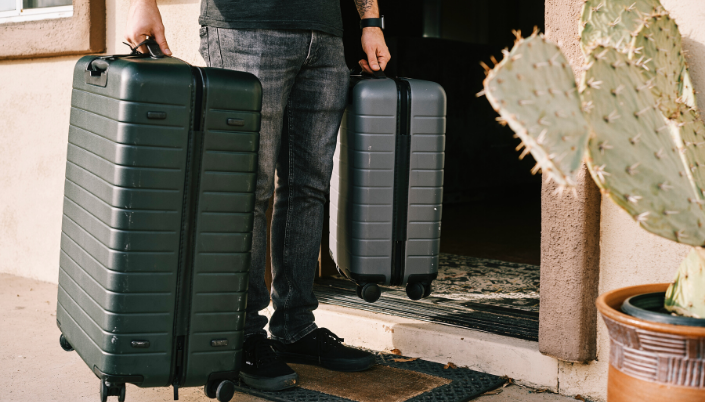

9 Questions to Ask When Choosing Your Travel Insurance
02 Feb 2018 by Olga Brighton
When it comes to travel, there are countless logistical and practical matters to address to ensure your trip is perfect and this includes travel insurance. Some will tell you that travel insurance is a waste of money, whereas those with first-hand experience, know it can be a life-saver if something goes wrong while you are away. Travel insurance provides peace of mind, a financial safety net, and much more besides, so the general consensus among savvy-travellers is that it is a critical ‘must-have’.
Finding the right cover however, is easier said than done because of the mind-boggling choice available. If you’re on the lookout for travel insurance, here are 9 essential travel insurance questions to ask before choosing a policy.
1. What kind of trip am I taking?

Think about how long you are away and how often you will travel within twelve months. If you are lucky enough to be travelling for several months at a time – try searching for ‘long-stay’ travel insurance products. Whereas if you plan to take 2 or more separate trips, an Annual Multi Trip policy may be more cost effective for you, rather than a Single Trip policy.
2. Who's travelling with me?
Are you travelling alone, with friends, or family, and what are their ages? This is important as you must declare all travellers ages, and you could save money if you look out for discounts for kids or couples. Generally, the cost of most travel insurance policies vary depending on your age and there may be restrictions for older travellers and most companies will have a maximum age limit. If you are a senior traveller however, don’t despair. If you shop around, you will find that there are a lot of providers out there that cover more mature individuals.
Read also: Do's and Dont's for Making a Successful Travel Insurance Claim
3. Which countries are covered?
Travel insurance companies often categorise countries into different geographical areas. This is straightforward enough if you are heading for popular destinations like Spain, Portugal, Italy, France, the UK, and USA, but be mindful that you select the right geographical area for wherever you are travelling. For example ‘Morocco’ isn’t in the EU, but is it often classified as ‘Europe’ for travel insurance purposes, so don’t pay more than you need to. Also be cautious of visiting countries with a history of civil unrest and/or war and political divides, because they won’t be covered if the Foreign & Commonwealth Office (FCO) advises against travelling there.
4. What doesn’t my policy cover?

As well as finding out what your policy covers (more on that next) it’s important to check what your travel insurance policy doesn’t cover. This is especially important if you are taking valuables with you, or doing some sports, or adventure activities. Travel policies have overall baggage limits and often another (lower) limit on valuables. Many policies will not cover you for injuries sustained while partaking in some pursuits such as mountain biking or climbing as they are deemed as higher risk and you are more likely to sustain injury. By asking these question now, you know what luggage is covered, which activities to avoid, or at the very least, where you will need top-up cover.
5. What does my policy cover?
This is one of the first things to check. Generally, most policies will offer cover for things such as:
- Emergency medical expenses for unforeseen illness or injury
- Lost or stolen luggage
- Cancellation or curtailment (due to certain listed emergencies)
- 24-hour emergency helpline support.
Only you know the cost of your trip and what you plan to take with you – so you should work this out before you choose your travel insurance policy. Ideally opt for a policy with over £1 million in Emergency medical expenses cover (medical costs can easily run into thousands). Think about the value of your luggage and gadgets and check that you chose a policy with the right cover for you. By checking now you will avoid the unwanted surprise of finding out too late that you’re not covered.
Read also: What’s Most Important to You When Buying Travel Insurance?
6. What is the excess?
In the world of insurance, an excess is an amount that you, the policyholder, will be required to pay towards any claims you make on your insurance. Typically, this is the amount deducted from your claim and you should make sure you are happy with the amount before you buy your policy. In some cases, you may have the option to pay an additional premium to completely remove the excess from your policy. This basically means that if you do need to make a claim, you won’t have the excess amount deducted from your claims pay-out, because you have purchased excess-waiver cover.
7. Is my medical condition covered?

If you have a pre-existing medical condition, it is essential that you comply with any special terms the travel insurance company has at the outset for customers with pre-existing medical conditions. Depending on your medical condition, it may be tougher, or possibly more expensive for you to buy insurance that includes pre-existing conditions. Don’t let this put you off however, as there are now more providers than ever, that offer cover. Many companies have ‘accepted conditions’ lists or a special number to call and check. NEVER withhold details of a pre-existing condition, or try to hide it from your providers because this could invalidate your policy.
8. Is personal liability cover included in my policy cover?
So far, we’ve focussed on potential claims made by you, but what about if your actions were to damage somebody’s property, or injure somebody? That’s where you will need personal liability cover. If you are at fault, this basically covers costs like compensation, or legal costs authorised by the insurance company.
9. What if I have already travelled?
So what can you do if in your rush to escape on holiday, you have forgotten to take out insurance? Most companies do not provide cover after you have already left your home country, however, there are a few that will still offer cover even if your trip has already begun, so you can try searching ‘already travelled’ to check your options.
Whatever travel insurance you choose, check the latest travel advice from the FCO and stay safe.
We accept

.png)